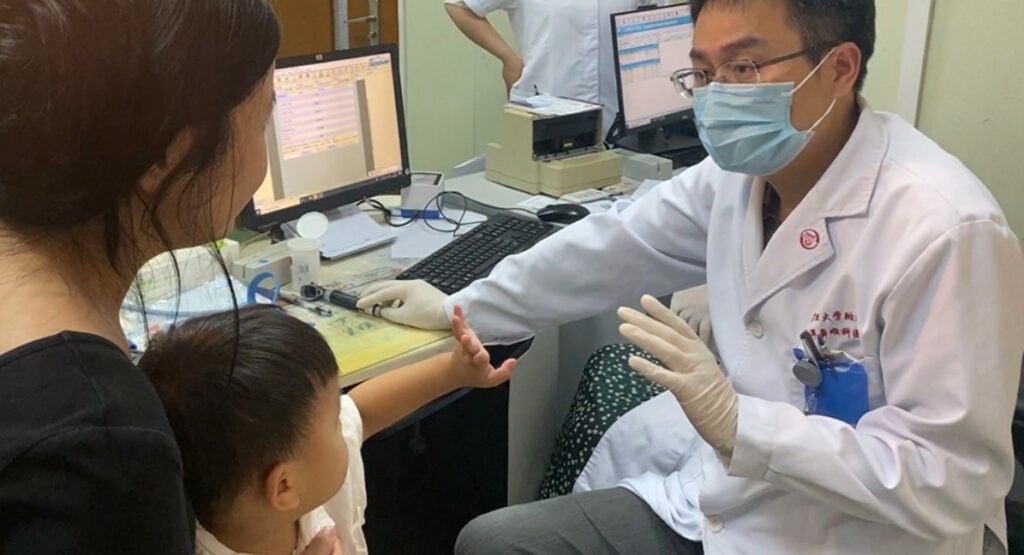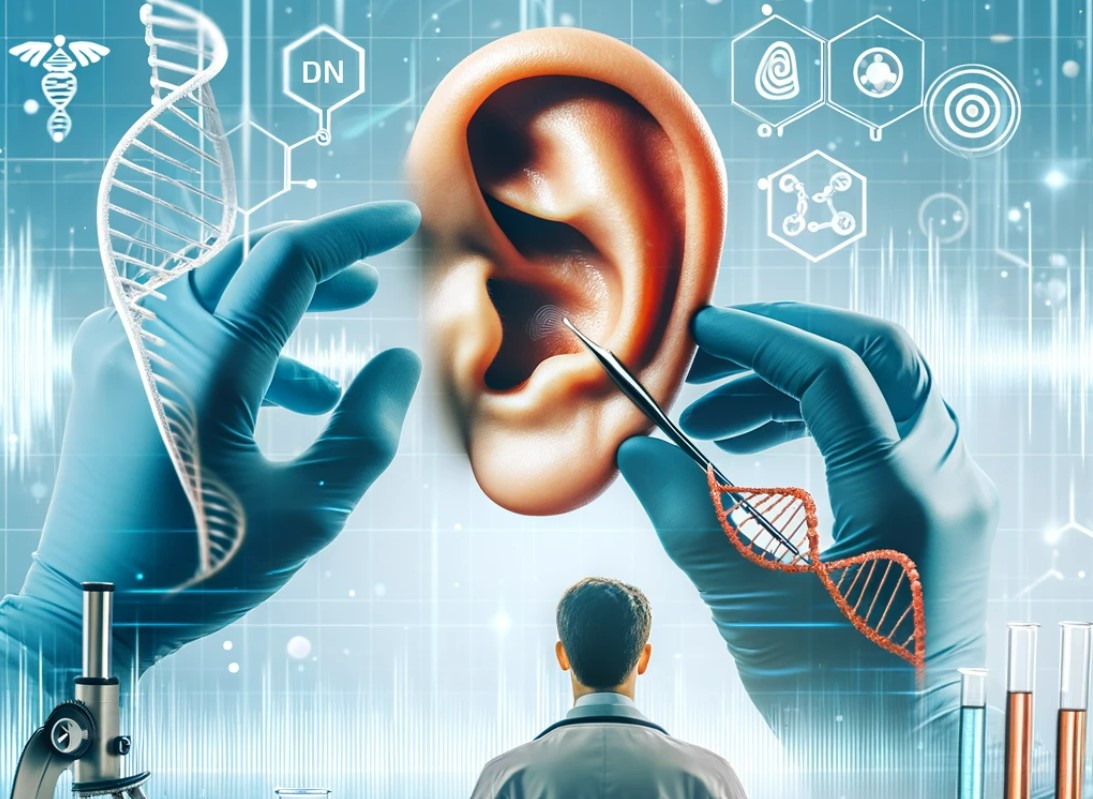BOSTON, MASSACHUSSETTS — A groundbreaking clinical trial conducted in Shanghai, China, in collaboration with researchers from Mass Eye and Ear, has demonstrated significant advancements in the treatment of autosomal recessive deafness caused by mutations in the OTOF gene.
This novel gene therapy, administered to both ears of five children, successfully restored their hearing and provided additional benefits such as improved speech perception in noisy environments and the ability to localize sound sources.
Gene Therapy for DFNB9 Hearing Loss
The trial marks the first instance of bilateral gene therapy being used to treat this form of inherited deafness. The findings, published in Nature Medicine, highlight the superior outcomes observed in children treated in both ears compared to those treated in just one ear in earlier phases of the trial. The children not only regained hearing but also showed remarkable progress in recognizing speech amid background noise and pinpointing the origins of sounds.
Zheng-Yi Chen, DPhil, a co-senior author of the study and associate scientist at Mass Eye and Ear, expressed optimism about the results:”
“We continue to see the hearing ability of treated children dramatically progress, and the new study shows added benefits of the gene therapy when administered to both ears”
The research was conducted in partnership with the Eye & ENT Hospital of Fudan University in Shanghai, where lead author Yilai Shu, MD, PhD, oversaw the treatment. Shu emphasized the importance of bilateral treatment in maximizing hearing recovery. “Restoring hearing in both ears of children who are born deaf can maximize the benefits of hearing recovery,” he said. “These new results show this approach holds great promise and warrant larger international trials.”
The trial involved injecting functioning copies of the human OTOF transgene carried by adeno-associated virus (AAV) into the inner ears of the children through a minimally invasive surgery. Despite 36 observed adverse events, no serious or dose-limiting toxicities occurred, and all five children exhibited significant improvements in hearing. Two children even developed an ability to appreciate music, demonstrating complex auditory processing capabilities.

Dr. Yilai Shu communicates with a young patient at the Eye & ENT Hospital of Fudan University. Image credit: Mass Eye & Ear
The research team, having previously delivered the world’s first gene therapy for DFNB9 in one ear, is now focused on expanding their work internationally. They aim to further explore the potential of this therapy for other forms of genetic and non-genetic hearing loss. “Our ultimate goal is to help people regain hearing no matter how their hearing loss was caused,” added Chen, who is also an associate professor at Harvard Medical School.
This study underscores the potential of gene therapy to address hereditary deafness, a condition for which no drug treatments currently exist. The ongoing support from institutions like the Gene and Cell Therapy Institute at Mass General Brigham is crucial in translating these scientific discoveries into clinical applications. The researchers acknowledge the need for further studies to refine the therapy and manage the increased risks associated with bilateral treatments.
The trial was funded by various Chinese national and municipal organizations, as well as Shanghai Refreshgene Therapeutics Co., Ltd. The detailed results of the study are available in the June 5th issue of Nature Medicine.
Citation:
- Wang, H et al. “Bilateral gene therapy in children with autosomal recessive deafness 9: single-arm trial results”. Nature Medicine. DOI: 10.1038/s41591-024-03023-5.
About Mass Eye and Ear
Massachusetts Eye and Ear, founded in 1824, is an international center for treatment and research and a teaching hospital of Harvard Medical School. A member of Mass General Brigham, Mass Eye and Ear specializes in ophthalmology (eye care) and otolaryngology–head and neck surgery (ear, nose and throat care). Mass Eye and Ear clinicians provide care ranging from the routine to the very complex. Also home to the world’s largest community of hearing and vision researchers, Mass Eye and Ear scientists are driven by a mission to discover the basic biology underlying conditions affecting the eyes, ears, nose, throat, head and neck and to develop new treatments and cures. In the 2023–2024 “Best Hospitals Survey,” U.S. News & World Report ranked Mass Eye and Ear #4 in the nation for eye care and #7 for ear, nose and throat care.
Source: Mass Eye & Ear






